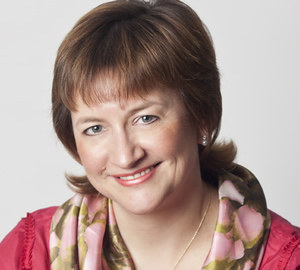Increasing Profit Without Spilling Blood, Sweat & Tears

Increasing profits – What exactly does that mean?
Simply put - more blood sweat and tears.
Most business owners have already been through the mill, working ludicrous hours, rarely seeing their kids, working weekends and with their business constantly on their mind. As for holidays, well what are those?
If increased profit means a lot more slog, pressure and hassle then who really wants that?
What is the real conversation that will inspire a business to change things that result in them getting more of what they want, when they want, with whom they want and make more profit at the same time? What is the emotional trigger that will finally tip the scales and force the owner to do something about it?
It’s all about the pain threshold; as soon as it becomes unbearable, that’s the point the owner, followed by the business, starts to make a shift.
Many businesses have clear aspirations to grow but the owners don’t want to work even harder, stay at the office even longer and see their kids even less than they do right now. Some want to eventually sell or pass their businesses on, but recognise that they are closely tied to everything in it, doing or overseeing much of the work themselves. Profits are static, meaning that often important investments are delayed to curb spending and keep the situation feeling worthwhile. What does this cost the business owner in emotional profit (meaning time, energy, health and emotional well-being)? Of late so many business owners are quite simply exhausted; they need a break yet are scared to leave the business for too long – for some it may even feel like an addiction!
So what’s the answer?
Business owners need to unpack the business to see where untapped profit lies and how they can extract this more easily.
A simple question can set the ball rolling namely; “What is the business doing for customers that they are currently not paying for?”
Revisiting the service that’s being sold and identifying the constituent parts will allow re-shaping into different offerings which can be priced accordingly. The result: one core product turned into different offers, giving the client base more choice.
So many family businesses fit family members into the available jobs, creating shortages in skill sets and lack of accountability. Businesses should create the organisational structure they need and recruit the square pegs for the square holes – if they do, life will become easier!
Another step that makes a real difference to actual and emotional profit is organisational structure. Often businesses struggle to manage all of the tasks that need to be done within sensible hours.
By choosing to press the ‘pause’ button to look at budgets and existing resources alongside current capacity and internal capability, the client has make a positive decision to divest the business of resources that do not fit the future needs of the business, re-investing in talent that will really make a difference. The result: overnight the stress has literally disappeared from the business, as they breathe a sigh of relief at the light at the end of the tunnel. The business has the right team with the right skills.
As for the owner, they now have uplift in profit – both emotional and actual!
In summary, improving profitability is an exciting conversation that is not just a commercial activity, it’s cultural as well. Often it does not warrant major surgery; sometimes it’s just a nip, tweak or tuck that the business needs, starting with a hard look at the numbers.
Focus on improving all the things in the business that are not working right now and profitability will start to increase – free of the blood, sweat and tears of the past.
This article was written by Gaynor McIntyre who is a Business Consultant at Condies Strategy. Gaynor has spent 20 years working with owner managed businesses (usually between £500k & £3m turnover) and the public sectors. She works with clients to help restructure their business, create staged growth planning, revise product offering and product positioning. She has developed the Condies Catalyst programme which is a practical series of workshops designed to give you practical plug in tools that help business owners manage their businesses better. Gaynor can be contacted on 01383 721421 or email Gaynor.mcintyre@condie.co.uk
